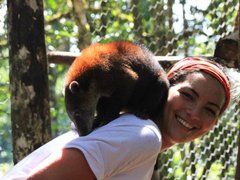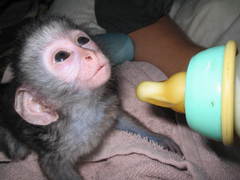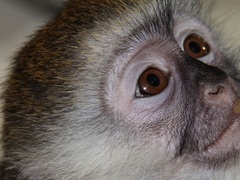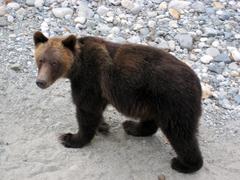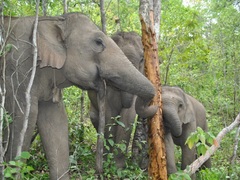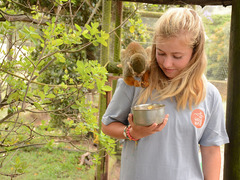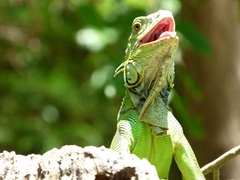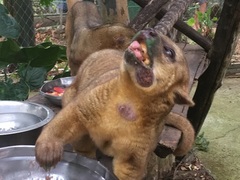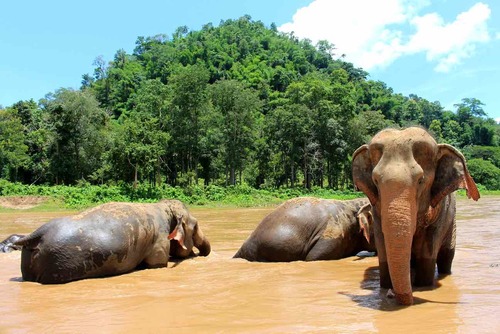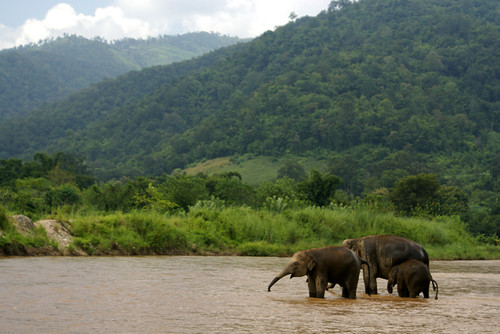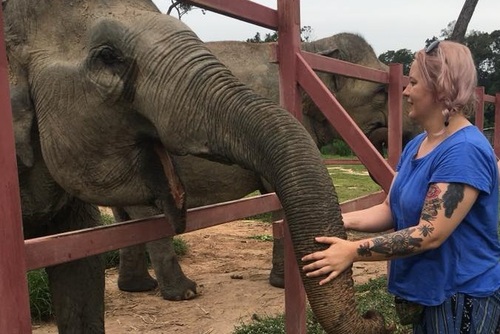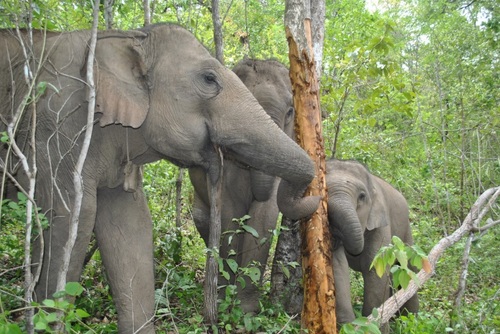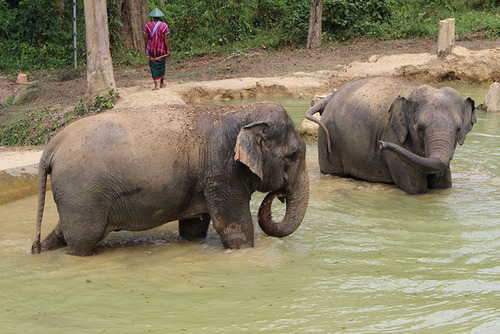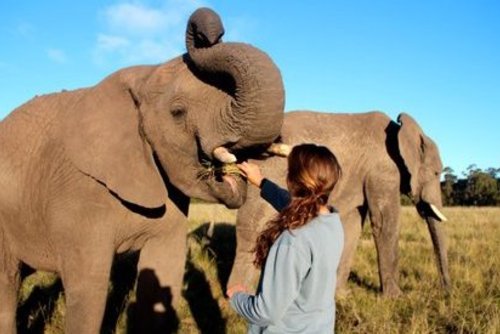Campaigning against and striving to prevent illegal wildlife trade, Wildlife1's legal mandate also includes the rescue and rehabilitation of wildlife, including bears, to restore their lives close to nature in the foundation's facility and to re-introduce wildlife confiscated in illegal trade when applicable.
In March 2012, Wildlife 1 Foundation purchased a 15 rai site directly adjacent to the Chiang Dao Wildlife Sanctuary and National Park in Chiang Mai province (northern Thailand). Here, a wildlife rescue and rehabilitation centre is currently being developed and this is where the volunteers will be working and residing.
The facility currently houses three Asiatic black bears (two baby siblings), one stump-tailed macaque, one rhesus macaque, two pig-tailed macaques, two slow loris (mother and child), with the intention to increase the numbers of rescued wildlife once more enclosures are constructed. We have accommodation, kitchen, office and workshop/storeroom and are now moving on to construct enclosures for bears and primates, along with smaller enclosures for small carnivores and birds.
Volunteer Requirements
You do not need any specific skills or qualifications to volunteer with Wildlife1. Our only requirement is that you bring with you enthusiasm, willingness to participate in teamwork and a love of wildlife! There is no age restriction on volunteers, but those under 18 must be accompanied by an adult.
Volunteer Duration and Fees
10,000 baht ($300) per week pays for your food and accommodation, training, supervision, plus the added bonus of knowing that the money is used to help care and feed the animals, promote organic farming and sustainable living as well as maintain the sanctuary.
There are also day visits available at 2,000 baht/day.
Volunteer Activities:
- Wildlife food preparation and feeding
- Wildlife enclosure cleaning, including bear pool scrubs
- Designing and creating safe, suitable enrichments for the animals
- Vegetable garden and tree nursery work, including weeding, planting, harvesting etc.
- Infrastructure development: the rescue centre is developing and help is needed with various activities such as enclosure building and various ongoing construction/development projects
- Keeping the site clean and tidy.
In addition to the above, your help may also be needed with other projects such as wildlife behaviour monitoring, wildlife camera-trap placements and monitoring, plus nature trail creation and maintenance. The work can be physically demanding, particularly in the hot season, but the outcomes are well worth the effort!
Volunteers will have the opportunity work on all aspects of the centre, but if you have a specific skill which is relevant (e.g. vet nursing, horticulture, construction, etc.) we will try to accommodate this where possible.
Depending on your length of stay and the season, we also offer a range of one and two-day excursions in the local area, including activities such as camping in the nearby national park, hiking up Chiang Dao mountain and visiting a local school to help out in teaching English. Volunteers are also able to visit the local markets and are able to accompany staff on their weekly animal food pick-up.
Working Hours
Working hours usually start at 7am, when food preparation for the animals begins. Your day will be determined by a rota which changes daily and makes sure that everyone participates in all tasks and does their fair share of work. Lunch is from 12 noon til 1pm, and work usually finishes around 5pm, depending on the task you are doing. The jobs can be hard, but there are plenty of rest breaks and it is very rewarding work!
Volunteers are expected to work six days a week, with the other day being free for you to use as you like. If you are volunteering for more than two weeks, however, and would like a few days off from the project as part of your holiday, this can be arranged as long as we have a few days notice, so we can cover your absence.
Hands-Off Policy
Wildlife1 operates a hands-off policy where our wildlife is concerned. This is primarily to protect the animals, most of which have suffered trauma through humans in the past and who can find contact stressful. It is not necessary to handle the animals in normal circumstances, and although it might be tempting to touch the wildlife for the 'experience', it does not benefit the animals, it is counter-productive to their rehabilitation and could also end in volunteers being attacked or injured.
Touching the animals not only puts you at risk from injury, but also endangers the wildlife. Many diseases can pass between humans and primates in particular, and what is a slight sniffle or runny nose to you might be much more dangerous to a macaque, and vice versa. For your own health and safety, as well as that of the wildlife, we request that volunteers do not touch the animals unless specifically asked to do so by a staff member.
Food & Accommodation
Three meals per day are provided for volunteers and cost is included in the price. Breakfast, lunch and dinner are prepared for you, with several choices of dishes per meal. Volunteers are also able to help out in the kitchen; this way you can even learn to cook some Thai dishes! Water and hot drinks are available for free, and volunteers can also purchase soft drinks and beer on site. Vegetarians and vegans are catered for at the project and should let us know their dietary needs in advance, as should those with any food allergies.
Currently on site are two volunteer shared rooms, one for males and one for females, in a brand new building. Each room has it's own adjoining bathroom just down the corridor, which feature western-style flushing toilets, hot showers, sink and mirror.
Next to the volunteer accommodation building is the kitchen where food is prepared. Adjoining this is a comfortable covered outdoor seating area for volunteers. Here you are welcome to make yourself tea or coffee and socialize.
Staff accommodation is in front of the volunteer building, with a member of staff being present 24 hours a day in case of emergencies. We do not currently have a laundry facility onsite, but volunteers are able to have their laundry collected by a local laundrette company at a cost of 10 baht per item. Please speak to a member of staff for more details!
The water at Wildlife1 is fed directly from a nearby dam, giving us a very stable supply with good pressure. The water is passed through a filter onsite, which removes sediment, but doesn't always get every grain so the tap water might not always look crystal clear! Throughout all of Thailand, however, it is always better to drink bottled water rather than the tap water anyway, so we provide this onsite free for drinking. The tap water is safe for showering, brushing teeth etc. and will not make you ill.
The Village
The nearest village to the site is Muang Ngai, located about 10 minutes drive away. Here there clothes shops, a convenience store, a food market and an internet café, as well as other local shops selling everyday goods.
Twenty minutes drive from the site is Chiang Dao, a small town (or large village!) which attracts quite a few tourists due to it's location at the bottom of Chiang Dao Mountain. The town itself is home to a lot of shops, including those selling food and clothes, and has much more to offer than Muang Ngai in general. There are many basic Thai restaurants, including several vegetarian/vegan cafes and food vendors, as well as a Tesco Express, 7 Eleven convenience store and a Kodak shop. There is also one restaurant which sells Western food such as sandwiches, omlettes, French fries etc., called 'Mon & Kurts'.
There are several guesthouses, hotels and homestays in and around Chiang Dao, as well as a bus station, where buses run every 30 minutes during the day to Chiang Mai for 40 baht per person.
Local Markets
There are several markets in the local area which volunteers are able to visit if they wish. Every Sunday morning and Friday night, there is a market on the main road of Muang Ngai, selling a wide range of goods, including food, cheap clothing and souvenirs. You can also see members of several hill tribes at these markets as they venture into the villages to sell their goods. Every Tuesday morning, there is a larger market at Chiang Dao village, selling similar goods but with a little more choice. Every Tuesday morning, staff from Wildlife1 buy the week's supply of animal food here, which volunteers are welcome to help with.
If you have any questions, please e-mail us. Thank you for your interest and hope to see you soon!


